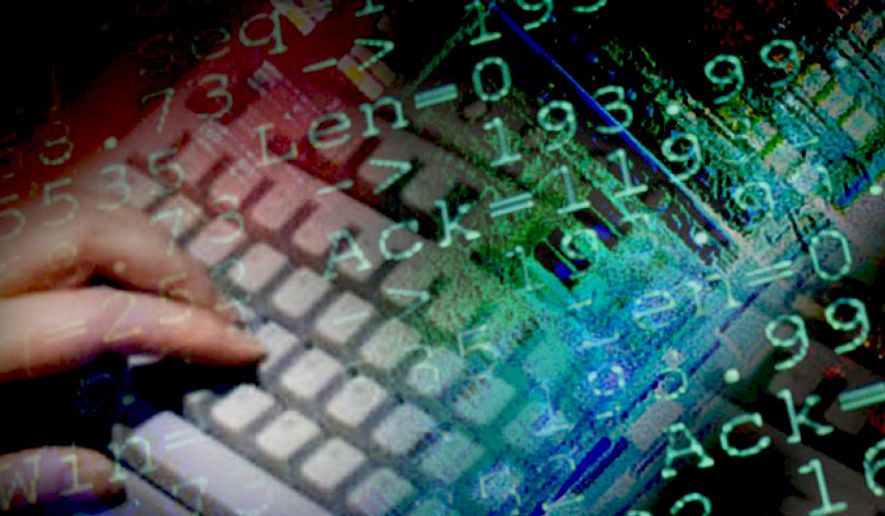MADISON, S.D. (AP) - Cyber security is a lot like the common cold.
There’s no cure for either, but there are ways to combat both.
“Security is all about layers,” said Sam Coome, a 23-year-old Dakota State University graduate student.
At a time when Russian hackers, WikiLeaks and threats of cyber warfare make national headlines daily, those layers of security are critical.
And the nation’s next line of defense against cyberattacks could include Coome and his classmates on this small-town campus about an hour northwest of Sioux Falls.
The Argus Leader (https://argusne.ws/2kTSI3v ) reports that enrollment in DSU’s cyber security program has more than doubled in the last five years while other South Dakota colleges struggled to maintain numbers.
The national headlines piquing even more interest and giving students a greater sense of purpose in their studies.
“The wheels in their heads are turning,” Pauli said. “And (they’re) saying, ’Geez, I could find myself in the middle of one of these situations in the not too distant future.’”
DSU students learn how to think like hackers in an environment not found in many schools nationwide, which in turn teaches them to keep hackers out.
It’s a skill that’s seen increasing demand from not only government agencies like the National Security Agency, but also from businesses of all sizes in all industries.
“I think almost everyone here recognizes the importance of what we’re learning,” said Joshua Klosterman, who will graduate from DSU this spring with a network security and administration degree.
DSU wasn’t always the regional hub for all things cyber security. The school started in 1881 as a teacher’s college.
About a century later, the university found itself struggling to differentiate from other teacher colleges in the state. The legislature had attempted to close the college, and enrollment was dropping.
Then-Gov. Bill Janklow recognized DSU’s struggles, and he also saw that technology was the way of the future as companies like Citibank moved to the region.
Janklow worked with the Board of Regents to change the mission of DSU, and in 1984, state legislators gave DSU the mission of specializing in computer-related programs.
Today, DSU one of four universities in the nation with a regional resource center through the NSA. It was also the first college to ever have an articulation agreement with the NSA, and its cyber operations major is designated among only about a dozen in the country as a Center of Academic Excellence.
DSU students go on to work for the National Security Agency, Johns Hopkins Applied Physics Lab and Navy SPAWAR (Space and Naval Warfare System Command).
“There’s a lot of job security here,” said Andrew Kramer, a 26-year-old DSU graduate student.
Josh Pauli, who has taught cyber operations for the last decade and spent 13 years total as a DSU professor, often jokingly shares the same observation.
“DSU is better known in Baltimore and in Washington D.C. than in South Dakota,” Pauli said.
The two programs at the heart of DSU’s rise into the world of cyber security are cyber operations, and network security and administration.
It’s rare to find programs like these in the nation, much less the region, Pauli said, especially for undergraduates.
“There’s probably only five or six programs in the nation that are designated by the NSA in Cyber Operations,” Pauli said.
Students practice both offensive and defensive security. They work in a “hacking lab” to learn how hackers think, which helps them learn how to defend against attacks.
Some students even get a security clearance allowing them to work directly with the NSA through internships, meaning they’re seeing firsthand responses to news like Russian hacks.
“They would be right there in the thick of things,” Pauli said.
DSU is also working to create a secure facility on campus that would allow student collaboration with the NSA to take place closer to home, Pauli said. That facility would need the go-ahead from the NSA and the Department of Defense before moving forward.
Not all DSU students aspire to federal government jobs. Kramer, who’s in the second year of his Masters of Science in Applied Computer Science, plans to stay in South Dakota as a teacher.
Kramer knew he had a future in cyber security long before hacking was making headlines.
The northern California native started learning to program at age 11, and at age 15 he had hacked into the website of a local internet service provider.
Not wanting to cause any trouble, Kramer brought his findings to the company, saying he’d found a weakness in their website. He was worried he’d be facing charges, but instead, the company thanked him.
“I quickly realized it was something that I could turn into a career,” he said.
Kramer said it’s a common misconception that people treat computer hacking like “magic.”
“It may appear very technically advanced … but at its core it’s just understanding the rules that a system follows and working around them in ways that aren’t expected,” Kramer said.
That kind of problem solving is exactly what keeps Dylan Johnson, a senior cyber operations major, engaged in cyber security.
Johnson’s reaction to hacking headlines is one of both intrigue and inspiration. He and his friends often have discussions on the ethics of international cyberattacks and what it might look like if international laws pertaining to cyber security were ever implemented.
To catch the “bad guys” in cyberattacks, one has to understand how they operate, Kramer said.
And while the hundreds of DSU students in cyber security are learning to operate like the bad guys, they’re ultimate goal is to help the good guys stay safe.
“I really want to make sure,” Klosterman said. “Wherever I’m working, I can effect as much good change in the world as possible.”




Please read our comment policy before commenting.